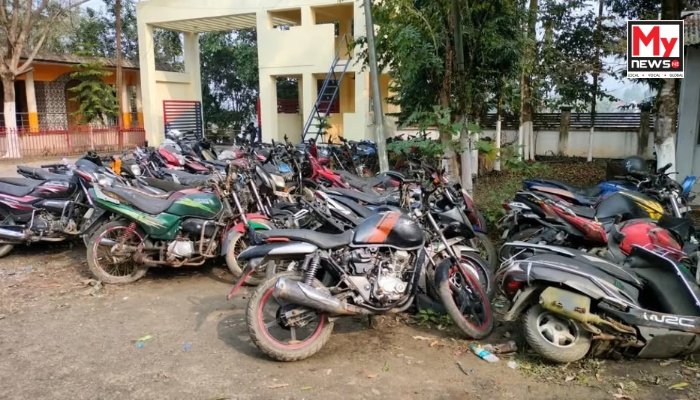Mizoram Police Immobilize Refugee Motorcycles Amid Movement Concerns
Lunglei, Mizoram – In a significant step aimed at regulating the movement of Myanmar refugees, the Lunglei district police have taken action to disable 60 Chinese-made Kenbo motorcycles utilized by residents of relief camps in the Lunglei satellite area.
Lunglei Superintendent of Police Jerome Lalmuankima addressed the media, detailing the operation that commenced on Friday. He confirmed that the front tyres of the identified motorcycles have been removed and are now securely stored at the local police station. The motorcycles themselves remain within the confines of the camps, parked at three designated locations.
SP Lalmuankima clarified the rationale behind the measure, stating, “The tyres will be returned when the refugees go back to Myanmar,” indicating that the immobilization is a temporary measure tied to their stay in India.
This action follows growing concerns regarding the unrestricted movement of vehicles belonging to the refugee population. In response to these concerns, a coordination meeting was convened on Monday at the Superintendent of Police’s office. Attendees included key representatives from the Thaizawl refugee camp, such as the refugee welfare secretary, the village council president, and the refugee in-charge. A key decision emerging from this meeting mandates that any refugee planning to stay outside the camp overnight must now provide prior notification to the authorities.
Further underscoring the commitment to maintaining order within the refugee settlements, SP Lalmuankima announced that police will conduct regular inspections, twice a week, in the camps to closely monitor activities.
Beyond administrative measures, Lunglei police are also focusing on fostering better integration and understanding. In collaboration with the Lunglei Young Mizo Association (YMA) sub-headquarters, the Mizo Zirlai Pawl (MZP), and the Mizo Students’ Union (MSU), a cultural awareness campaign is scheduled to commence on Thursday at the Ramthar camp. The initiative is designed to introduce the refugees to the local Mizo culture and prevailing social customs.
These recent developments signal a notable evolution in the state’s strategy for managing the refugee settlements, blending necessary administrative controls with efforts to promote cultural understanding and social harmony.
Read More: Nagaland Business Fraternity Announces Indefinite Shutdown Over ULB Representation Dispute

